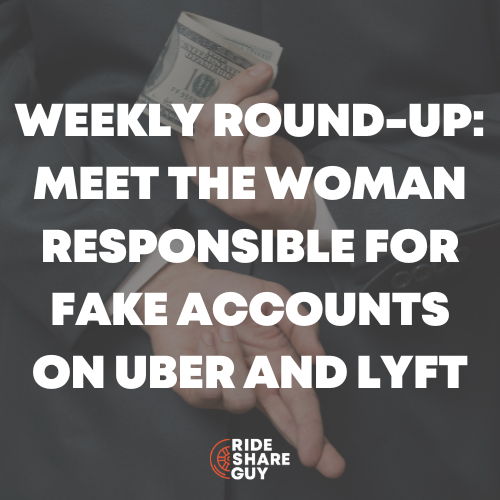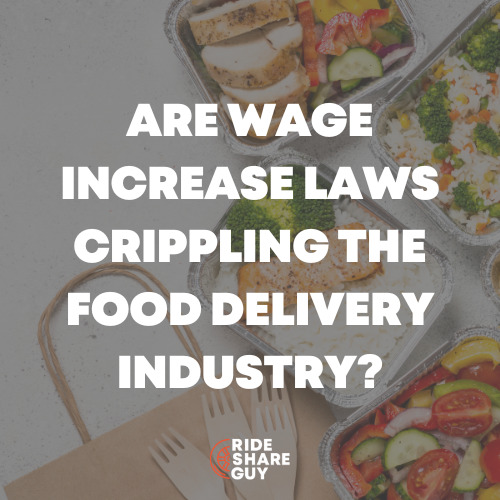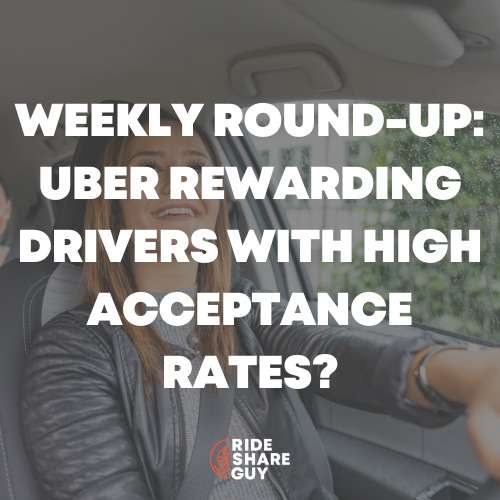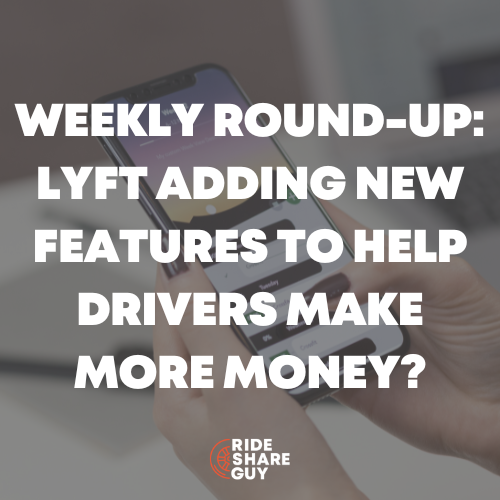Some overall pretty dark stuff in this week’s round up, including the story behind Travis’ ouster – it’s more juicy than you might have thought! In this round up, senior RSG contributor John Ince covers Travis’ exit from Uber, drivers shortchanged by Lyft, and Uber and Lyft hit with fines for not fully vetting drivers.
Also, we may have a winner for the worst case of upfront pricing from a reader submission! We’re confirming this reader submission but, if correct, Uber took 69% of the fare – leaving our driver with only 31% for his time and effort. You can read more about this practice here.
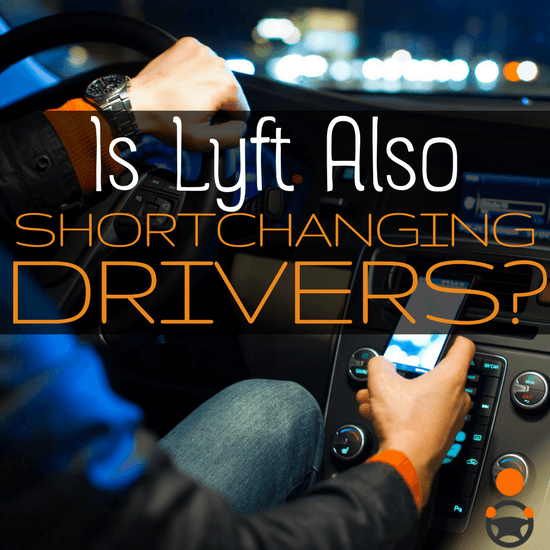
The Fall of Travis Kalanick Was a Lot Weirder and Darker Than You Thought [Bloomberg Business Week]
Sum and Substance: A year ago, before the investor lawsuits and the federal investigations, before the mass resignations, and before the connotation of the word “Uber” shifted from “world’s most valuable startup” to “world’s most dysfunctional,” Uber’s executives sat around a hotel conference room table in San Francisco, trying to convince their chief executive officer, Travis Kalanick, that the company had a major problem: him.
The executives were armed that day with something unusual for Uber Technologies Inc.: the results of a survey. Kalanick operated by gut feeling and with a stubborn sense of how people should feel, not how they did. Jeff Jones, Uber’s new president and former chief marketing officer for Target Corp., wanted more substantial insights. Conclusions drawn from the survey were printed and hanging on the walls. About half the respondents had a positive impression of Uber and its convenient ride-hailing app. But if respondents knew anything about Kalanick, an inveterate flouter of both workplace conventions and local transportation laws, they had a decidedly negative view.
As usual with Kalanick, the discussion grew contentious… It’s a story that, until now, has never been fully told. ……
A common factor in all these crises was Kalanick’s unrelenting combativeness. In meetings, he would alternately impress and alienate employees, investors, and his board. Over time, he turned a lot of friends into enemies with stories to tell. Jones, the president who had commissioned the public survey, resigned in March after only six months on the job, citing differences over “beliefs and approach to leadership.” In exit interviews with Uber board members, he was more specific, excoriating Kalanick’s shotgun management style and unwillingness to listen.
My Take: Eric Newcomer and Brad Stone, Bloomberg’s two key writers on this space, have written a riveting piece that’s chock full of juicy details about the decline and fall of one of Silicon Valley’s most intriguing personalities: Travis Kalanick.
We learn that TK wanted to placate the Uber driver in the infamous viral video by offering Uber stock and, when lawyers objected, he instead floated the idea of giving the driver $200,000 out of his own pocket. It’s unclear what transacted, if anything. But it provides insight into the mind of TK, someone who believed that just about anybody can be mollified for the right price. Unfortunately in our society today, he might be right.
That’s just one nugget in this excellent and lengthy piece. Read it all if you want to get the inside scoop on what’s actually happened behind the headlines. Well worth the read.
Lyft Drivers Say They’re Getting Shortchanged by the Company [NBC.com]
Sum and Substance: “They’re breaching their deal. They’re being deceptive. They’re being misleading,” said Attorney Stephan Mashe. The Lyft driver who picks you up may be getting cheated out of the money you’re paying for the ride.
Brian Bleecker has been driving for Lyft in Southern California for more than two years. He said he’s been happy, but he admits it’s not an easy living. “I’m struggling to make this work full time,” he said. “I wasn’t sure my house payment was going to clear this month.” Bleecker gets paid per ride. He thinks Lyft pays him the rider fare, minus a 20 percent cut that Lyft takes. He said that’s what he agreed to when he signed up.But, Bleecker recently heard rumblings that Lyft wasn’t being upfront about what it’s charging riders. So, he asked some of his riders to help him investigate.
“I was totally floored that it didn’t match. It didn’t make any sense,” Bleecker said. “A rider paid Lyft $22.16 for a ride, but the fare Lyft reported to Bleecker was $17.78. Another ride: Lyft charged the rider $48.46, but Lyft told Bleecker the rider paid just $35.47. Lyft is paying Bleecker based on a fare that’s lower than what it’s charging the rider. Bleecker said Lyft is pocketing money that should be his, and also duping the rider, leading them to believe the driver is paid based on the fare they paid. …
The suit accuses Lyft of deceiving drivers and shorting their paychecks. According to the suit, Mashel claims Lyft is secretly making two fare calculations per ride. One determines what riders pay. And the second determines what drivers are paid. Mashel said the driver formula is almost always lower.
“Those monies go into the coffers of Lyft that should go into the pockets of the hard working drivers who are trying to make a living doing rides and providing a service to customers,” Mashel said.
“There has to be some retribution, some fairness to it,” Bleecker said. Lyft didn’t respond to repeated phone calls and emails for this story. The company has filed a motion to dismiss the case. The two sides are scheduled to meet with a judge in January.
My Take: One of the common questions for anyone in this industry is: which is a better company: Uber or Lyft? With all the bad news about Uber, Lyft has mostly gotten a free ride in the press. Public perceptions usually follow media accounts, so the stereotypical narrative has become: Lyft are the good guys and Uber are the bad guys.
But it’s not that simple. The companies are essentially playing the same game: betting the house in an attempt to gain market share. They’re spending wildly to recruit drivers and passengers, applying the same motivational techniques to manage a massive workforce.
The net is that both companies are losing money big time. Both companies are under increasing pressure to turn a profit, and both companies play games with their drivers. Okay, Uber has gotten caught in their games more times than Lyft, but it now appears Lyft is in the hot seat.
I’m wondering what you think. Is Lyft just Uber-lite, or is it a wholly different company – with higher morals than Uber?
Colorado regulators fine Lyft more than $200,000 for using driver with serious felonies [Denver Post]
Sum and Substance: Ride-sharing service Lyft paid the Colorado Public Utilities Commission $224,375 in civil fines to settle allegations that it allowed a driver with serious felonies to transport passengers for more than a year. The actual fine was $448,750, but it was cut in half after Lyft admitted the violation and agreed to pay within 10 days last month.
…Ride-sharing firms can either perform a fingerprint-based criminal background check or use a private service based on names. Drivers need a clean record for at least seven years for felony DUIs and certain drug offenses.
But lifetime disqualifications exist for sexual crimes, violent crimes, fraud, destruction of property and other offenses. Companies are subject to fines for each day a driver with a disqualifying offense remains active on a platform.
“The safety of the Lyft community is our top priority. As soon as we became aware of this situation, we immediately deactivated this driver from the Lyft platform,” said company spokesman Scott Coriell. But Lyft did not inform the PUC of its findings, and under state statute, it had no obligation to do so…
Just before Thanksgiving, Colorado regulators slapped Uber with an $8.9 million penalty for allowing 57 people with past criminal or motor vehicle offenses to drive for the company. Lyft had undergone a review of its background checks before Uber did. But investigators didn’t find violations and the company wasn’t fined. … ride-sharing firms have shown a preference for private background checks based on names.
My Take: Here’s another example of Lyft getting caught playing the same games Uber was caught at. Both companies tout safety as their top priority, yet fight the more expensive background checks that might catch some of those problem cases that slip through the cracks. The fine against Uber was much bigger, but they were both playing the same game.
Drivers, what do you think of this week’s round up?
-John @ RSG

